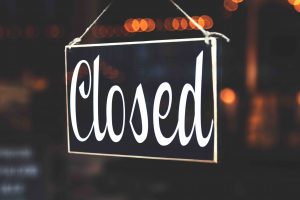 The partial shutdown of the federal government has been going on for almost five weeks as of the date of this article. Many government programs have been negatively impacted. This is especially pertinent regarding whistleblower (also known as qui tam) actions since the federal government is potentially involved in so many of the steps of prosecuting a successful lawsuit. Furthermore, the lack of government funding that has resulted from the shutdown may also increase the potential for more fraudulent acts that are the impetus for qui tam actions in the first place.
The partial shutdown of the federal government has been going on for almost five weeks as of the date of this article. Many government programs have been negatively impacted. This is especially pertinent regarding whistleblower (also known as qui tam) actions since the federal government is potentially involved in so many of the steps of prosecuting a successful lawsuit. Furthermore, the lack of government funding that has resulted from the shutdown may also increase the potential for more fraudulent acts that are the impetus for qui tam actions in the first place.
Federal Courts
The status of the federal court system is important when considering federal qui tam actions. This is because the lawsuits are based on a federal law, the False Claims Act, wherein a whistleblower (known under the law as a relator) brings a lawsuit on behalf of the federal government in cases in which businesses have brought false claims to the government for payment. As such, these lawsuits are almost universally brought in the appropriate federal District Court. In the San Francisco area, the United States District Court for the Northern District of California is the most frequent venue for filing qui tam actions. Luckily, for relators, at least, on January 11, Chief Judge Hamilton issued an order providing for the continuation of operations under the Anti-Deficiency Act (see the Order here). Simply put, this means the Court will continue to accept filings, hear, and decide cases without interruption and handle new and existing cases as necessary. This means that, for the Court, at least, the business of justice will continue unimpeded.
The Role of the Department of Justice
The government shutdown, though, may have negative impacts on the role of the Department of Justice. This is because the Department of Justice is generally responsible for the execution of the investigation into the claims of relators. It is important to remember that relators bring qui tam lawsuits on the behalf of the federal government. The Department of Justice then performs an investigation into the allegations and either chooses to join the lawsuit, allow the lawsuit to continue without being an active participant, or dismiss the lawsuit and disallow it to go forward. The point to focus on is the investigation process. In its contingency plan, the Department has indicated that it will only perform the following functions:
- Those that are funded through continuing or permanent appropriations
- Those for which there is express direction to continue notwithstanding the lapse of funding
- Those which need to continue as a necessary implication of other authorized duties
- Those related to the President’s constitutional duties and powers and
- Those related to the emergencies involving the safety of human life or the protection of property
Unfortunately, this most likely means that False Claims Act investigations will be on hold until the shutdown ends. A necessary implication of this is that investigations will now be backed up for as long as the shutdown continues. The concern now becomes that, upon resumption of full government activities, the Department may feel the need to join less cases and to dismiss some cases out of hand merely to get caught up. Time will tell, but skilled qui tam attorneys can help relators ensure that their claims are fully vetted.
Potential Increase in Fraudulent Claims
Finally, necessity may mean that there will be an increase in fraudulent claims. The reasons for this are twofold. First, it is a simple fact that claims for payment from the government have not stopped. Depending on the agency involved and the appropriation status of the particular program, some claims are still being paid. However, in those agencies and programs that are not funded, the claims are piling up and creating a backlog. The fear is that, as a result of trying to get caught up once normal operations resume, those responsible for payment will not pay the requisite attention necessary to ensure that due diligence is taken in approving payments. Another fear is that unscrupulous organizations will feel emboldened to file more fraudulent claims with the expectation that more false claims will be allowed to fall through the cracks due to the desire of officials to get caught back up and get business moving. Unfortunately, it is human nature that nefarious actors will find a weakness and try to exploit it.
Regardless of where you come down on the issues related to the government shutdown, the impacts are being felt by millions of Americans. If you have taken the courageous position of being a whistleblower in a federal case, you are already in an incredibly stressful situation and the uncertain nature of where you stand is surely only being made worse. If you are considering filing a qui tam suit or you are already involved in the process, you need a skilled and experienced qui tam law firm to help you protect your rights. The legal professionals at Willoughby Brod LLP have years of experience helping relators in the San Francisco, Oakland, and Santa Rosa area navigate this confusing environment, government shutdown or not. Give us a call today at 800-427-7020 or click here to set up your initial consultation and see what we can do for you.
(image courtesy of Tim Mossholder)
 Healthcare Fraud Lawyer Blog
Healthcare Fraud Lawyer Blog


